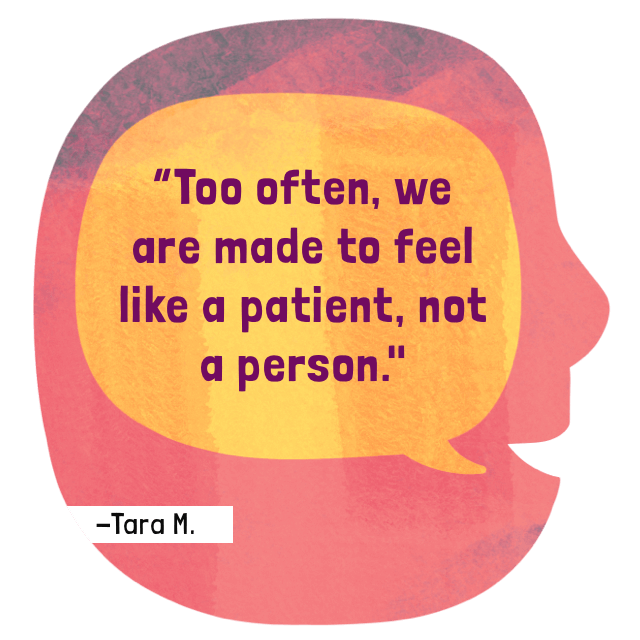Emotional? It's OK to Feel Feelings with Schizophrenia!
As a person living with schizoaffective disorder, or any kind of serious mental health issue, I think that it's often really hard just to feel our feelings without anyone (even us!) trying to pathologize what we feel.
Always analyzing how we feel
I think that it has been taught, when we enter the system, to be always on alert for red flags that things might be headed downhill – kind of like we're always waiting for the other shoe to drop.
It's a hard thing to "just feel sad" without someone (and yes, again, even us!) saying, "Hey, are you starting to feel depressed?" Or if we are experiencing exuberance and joy to not say, "Uh oh, are you headed for a manic episode?" Or if our thoughts are off or we're disconnected or distracted to think, "I hope this isn't the beginning of a psychotic break."
This or That
Have you been diagnosed with schizoaffective disorder?
Experiencing my emotions without fear of an episode
I guess what I'm trying to say is that it's okay to feel your feelings. Without them, we'd just be existing in a very boring and lifeless field. It's fine to feel sad some days without having to label it as anything. It's okay to feel joy without fear of having it be the start of a manic episode.
Just because your thoughts are scattered for a period of time, doesn't necessarily mean that you are going to have a break. These are all normal parts of existence as a human in this very complicated world.
Leaving our schizophrenia diagnosis out of it
What would happen if we just allowed ourselves to feel without labeling, censoring, or pathologizing our feelings? What if we allowed ourselves to examine and experience all those ups and downs and everything in between as just "us" and our natural reactions to what life is throwing at us. Just because we are having a bad day or feeling very intensely, doesn't mean that we need to think about our mental health all the time as a bad thing. Emotions happen to us all.
Unfortunately, we have been influenced by the system telling us that when we feel something, it's because it's a symptom of our illness. When in all actuality, it's most likely just a feeling or an emotion that is tied to what is going on in our lives.
My life beyond schizoaffective disorder

Our entire existence and experience revolve around our diagnosis, as if we are not capable of experiencing anything else besides symptomology of a disorder.
Sure, there are red flags that we need to look out for and I'm definitely not saying to ignore when things don't feel right. By all means, we know ourselves best and we know when something in our presentation isn't quite right. If you might be headed for a rough patch, pay attention to that and seek appropriate support, by all means.
Ask for support when you need it
There is no shame in seeking either social or professional support to get back to a place where you feel stable and safe. So don't ignore those warning signs!
But for the everyday emotions and feeling of happiness, sadness, dysregulation, and disconnection that we go through, just feel it. Let it run through you and experience it all.
Emotions make life worthwhile
It's OK to experience all the emotions that come up for us. It helps make our lives richer and more worthwhile. It teaches us that emotions and feeling pass. And that we can allow them to come and go like tides.
We can feel it all without having to slap a label on it or be afraid of feeling what is coming up for us. When we start to de-pathologize our emotions, we can start to de-stigmatize our experience.
